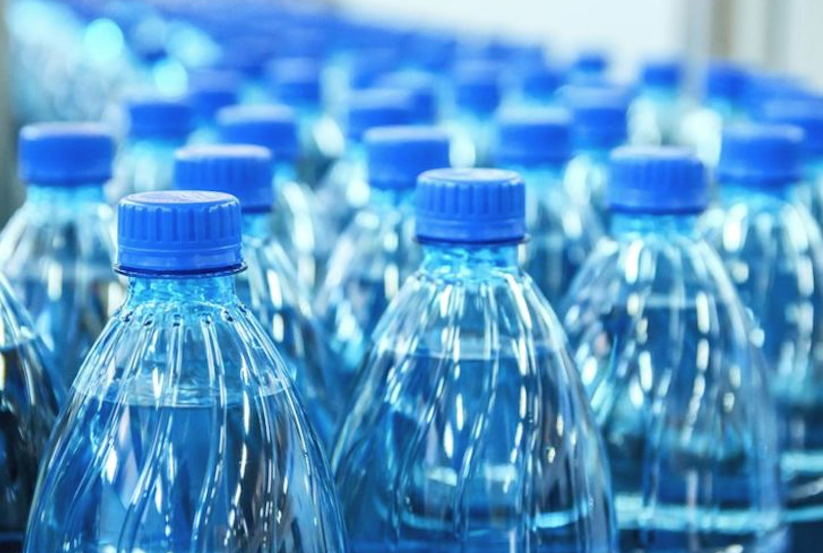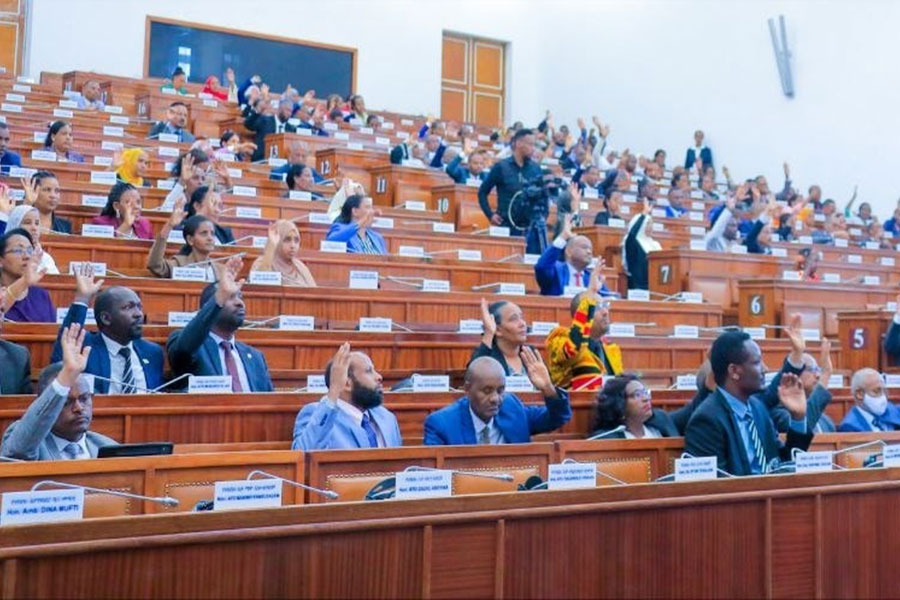
Fortune News | Mar 20,2021
Dec 7 , 2019
By GELILA SAMUEL ( FORTUNE STAFF WRITER
)
 Out of a total of 80 bottled water companies in Ethiopia, 14 of them bottle mineral water that now has to comply to new standards.
Out of a total of 80 bottled water companies in Ethiopia, 14 of them bottle mineral water that now has to comply to new standards. Fourteen mineral water bottlers are required to double the volume of the total fortified minerals in their products within six months.
Approved by the National Standardisation Council on July 15, 2019, the new standard will be enforced by the Ethiopian Standards Agency. The Agency gave the bottlers a half-year grace period to comply with the standard that mandates them to add the concentration of dissolved substances into their products.
With the previous standard, the bottlers were required to have Total Dissolvable Solids (TDS) content of 150mg a litre. The new requirement raised the level of Total Dissolvable Solids, which are comprised of dissolved inorganic salts, calcium, magnesium, potassium, sodium, carbonates, nitrates, bicarbonates, chlorides and sulfates, to 300mg a litre. The standard also set 1,500mg a litre as a maximum level.
A technical team called FC-27 proposed the new standard. The members are from the Food & Drug Administration (FDA), the Ministry of Trade & Industry, Bless Agri Foods Laboratory Services Plc, the Ethiopian Conformity Assessment Enterprise, Moha Soft Drink Industry and East African Bottling S.C. among others.
In preparing the standard, the team extracted research from the World Health Organisation (WHO), the African Regional Standards Organization (ARSO), and practices from countries like Kenya, Burundi, Nigeria and Uganda, according to Hiwot Hibist, team leader of the Agriculture & Food Standards Development under the Agency.
Out of a total of 80 bottled water companies in Ethiopia, 14 of them bottle mineral water that now has to comply to new standards.
"We don't have local research that specifies the level of TDS," he said, "thus, we customised other reports contextualising geographical, topographical and other parameters of Ethiopia."
However, the new standard faces strong pushback from industry operators, who claim that they were not consulted during the drafting process.
"We were part of neither the consultation nor the technical committee," said Ashenafi Meridu, head of the Ethiopian Bottled Water, Soft Drink, Fruit & Vegetable Manufacturing Industry Association, which represents 12 of the 14 mineral water companies in Ethiopia. There are over 80 general water bottlers in the country.
Wondimu Kebede, quality manager for Alpha Bottling, a local water bottling plant that resides in the Chacha area of Amhara Regional State, also says that the requirement is not reasonable, since the TDS level has no health impact.
"If there were issues with health," said Wondimu, "then we would have no problem accepting the changes in the standard."
Following the grievances of the bottlers, the Association has sent a letter to the standards agency requesting to be part of the technical team and Council.
The Agency and the bottlers association are in a series of negotiations over the issue. They also agreed to hire another international consultant to conduct assessments on the experience of other countries.
On October 31, 2019, the Agency presented two options to the bottlers: to reduce the mineral content to 250mg a litre and to label their water low, medium or high depending on the level of TDS content. The two options were also hard for the bottlers to swallow.
“Labeling the products with low, medium or high TDS levels without building the awareness of the public will affect our market,” said Ashenafi.
The latest meeting took place on December 3, 2019, for a final consultation to reach a consensus; however, it ended without reaching an agreement.
"This will potentially threaten the industry of bottled mineral waters in Ethiopia," said Wondimu.
Aynadis Tamene (PhD), assistant professor of food and a microbiologist at Addis Abeba University, also warns the maximum level should not go as high as 1,500mg a litre.
"It affects health when it gets excessive," Aynadis told Fortune. "But it doesn't have an effect if it is lower."
Aynadis also recommends the two parties settle on international health organisation standards.
PUBLISHED ON
Dec 07,2019 [ VOL
20 , NO
1023]

Fortune News | Mar 20,2021

Sunday with Eden | Dec 14,2024

Radar | May 25,2019

Radar | Mar 16,2019

Radar | Feb 15,2020

Radar | May 24,2025

Featured | Jun 24,2023

Fortune News | Aug 16,2020

Radar | Jan 03,2021

Radar | Jul 18,2021

Dec 22 , 2024 . By TIZITA SHEWAFERAW
Charged with transforming colossal state-owned enterprises into modern and competitiv...

Aug 18 , 2024 . By AKSAH ITALO
Although predictable Yonas Zerihun's job in the ride-hailing service is not immune to...

Jul 28 , 2024 . By TIZITA SHEWAFERAW
Unhabitual, perhaps too many, Samuel Gebreyohannes, 38, used to occasionally enjoy a couple of beers at breakfast. However, he recently swit...

Jul 13 , 2024 . By AKSAH ITALO
Investors who rely on tractors, trucks, and field vehicles for commuting, transporting commodities, and f...

Oct 11 , 2025
Ladislas Farago, a roving Associated Press (AP) correspondent, arrived in Ethiopia in...

Oct 4 , 2025
Eyob Tekalegn (PhD) had been in the Governor's chair for only weeks when, on Septembe...

Sep 27 , 2025
Four years into an experiment with “shock therapy” in education, the national moo...

Sep 20 , 2025
Getachew Reda's return to the national stage was always going to stir attention. Once...